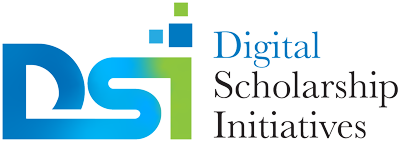Latest News
- MT Open Press—Booklist and Holiday Gift Guide 2025
MT Open Press wishes you a great winter break!
Celebrate the season with a great read from MT Open Press! Whether you’re curled up at home or traveling for winter break, our books make the perfect companion—and every purchase supports the university’s publishing imprint.
Still searching for that special holiday gift? Explore our cheerful gift guide and share the joy of reading this season!
Books to gift (and who to give them too)
- For those who love short story fiction or literary horror: Devil’s Oak: Waking the Feminine Wound (available as epub, paperback, or hardcover)
- For new or former educators: Educator Reflections: The Power of Stories (paperback)
- For cultural pedagogy and study abroad enthusiasts: Intercultural Engagement in Short-Term Faculty-Led Study Abroad (paperback)
- For technology and teaching specialists: Privacy and Safety in Online Learning (paperback)
- For a recent MTSU graduate or colleague: Engage: A Community Zine (a collection of poems, short stories, essays, and puzzles about engagement at MTSU–authored by students and employees!) (paperback)
- For yourself: any!
Enjoy winter break and happy reading!

MT Open Press is an imprint of the James E. Walker Library at Middle Tennessee State University
Learn more or access the free digital imprints at https://openpress.mtsu.edu
Purchase books at our storefront: https://www.lulu.com/spotlight/mtop
-
Read more: MT Open Press—Booklist and Holiday Gift Guide 2025MT Open Press wishes you a great winter break! Celebrate the season with a great read from MT Open Press! Whether you’re curled up at home or traveling for winter break, our books make the perfect companion—and every purchase supports the university’s publishing imprint. Still searching for that special holiday gift? Explore our cheerful gift…
-
Read more: Book Launch: Engage (Fall 2025)Announcing the newly released book, Engage: A Community Zine Congratulations to the 20+ authors who contributed to this compilation zine! The collective entries of student and employee submissions make up the book titled Engage: A Community Zine. This book was a publishing project co-sponsored by Engage and the James E. Walker Library at Middle Tennessee…
-
Read more: Call for Contributors: Authors and Artists for a Community Zine BookEngage Week at MTSU has opportunities for students and employees to be published authors in a community zine! Applications open September 15-28, 2025. What is this about? Become a published author! For Engage Week at MTSU, we are looking for creative contributions with an engagement theme to publish in a community zine book. The theme…
-
Read more: Book Launch: Educator Reflections: The Power of Our StoriesAnnouncing the newly released book, Educator Reflections: The Power of Our Stories Congratulations to MTSU faculty, Pamela Kramer Ertel and Robyn Ridgley (editors), and their chapter contributors! They published an edited monograph on April 15, 2025, titled Educator Reflections: The Power of Our Stories. This is the third book published under the James E. Walker…
-
Read more: MT Open Press—Read and Write More BooksMT Open Press is a library-based publisher that supports authors with free production services and encourages everyone to read free digital books. MT Open Press books have had 5,000+ downloads from readers around the world. We also have a current open call for book proposals for the 2025-2026 author cycle. Proposals are accepted from December 3, 2024…
-
Read more: New publication addressing inclusive design as a method and craftNew publication addressing inclusive design as a method and craft now available. A new resource for project design in UX/UI and project design in the digital social sciences and humanities is now available as an open access book chapter published in 2024.
-
Read more: DSI Lab project won Best Virtual Exhibit AwardIn May 2024, a DSI Lab project won the PR Xchange Award Competition for best virtual exhibit. The project applies a digital social science lens to promote holistic health and wellness with inclusive design strategies. The Lab Team included faculty and graduate students with interdisciplinary backgrounds including interactive information retrieval, health/wellness, and professional counseling. The…
-
Read more: MT Open Press—Winter Break SaleEnjoy up to 25% off books published by Middle Tennessee State University from December 14 to January 13.
-
Read more: Book Launch: Intercultural Engagement Through Short-Term Faculty-Led Study AbroadAnnouncing the newly released book, Intercultural Engagement Through Short-Term Faculty-Led Study Abroad: A Practitioner’s Guide with Multidisciplinary Perspectives from a Public University Congratulations to MTSU faculty, Priya Ananth and Seok Jeng Jane Lim (editors), and their chapter contributors! They published an edited monograph on September 15, 2023, titled Intercultural Engagement Through Short-Term Faculty-Led Study Abroad:…
